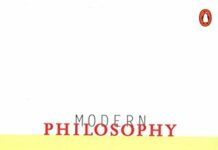
Ebook Info
- Published: 2001
- Number of pages: 164 pages
- Format: EPUB
- File Size: 1.51 MB
- Authors: Roger Scruton
Description
Kant is arguably the most influential modern philosopher, but also one of the most difficult. Roger Scruton tackles his exceptionally complex subject with a strong hand, exploring the background to Kant’s work and showing why the Critique of Pure Reason has proved so enduring.ABOUT THE SERIES: The Very Short Introductions series from Oxford University Press contains hundreds of titles in almost every subject area. These pocket-sized books are the perfect way to get ahead in a new subject quickly. Our expert authors combine facts, analysis, perspective, new ideas, and enthusiasm to make interesting and challenging topics highly readable.
User’s Reviews
Reviews from Amazon users which were colected at the time this book was published on the website:
⭐It’s a very short introduction! Effective at communicating Kant’s most major contributions comprehensively and very briefly. Good starting point for Kant education. One of the better efforts in the series in my opinion.
⭐This book, assigned to me in my Modern Philosophy class, like some of the other reviewers here, is a shockingly packed introduction to Kant in a very small book. The content is a wild ride. There are photos, Kant’s unique terminology, and a bit of Kant’s personal life. It is impressively detailed considering how “very short” it is. It did a good job of laying out the basics of Kant’s thoughts while still managing to include everything. Most of the chapters have sections, which is helpful as you read along. The chapter on “transcendental deduction” was definitely the most perplexing, and seemed to use the most terms that were particularly unique to Kant. Even so, Scruton did a good job of breaking those thoughts down into layman’s terms and helping the reader understand as they read. This will definitely be helpful to have as background as my class further studies Kant, and I would recommend it to anyone looking at Kant for the first time.
⭐This book has been assigned to my Modern Philosophy class as an introduction to Kant in our final unit of the semester. As an introduction to Immanuel Kant’s philosophy, this book has been very insightful. I appreciate the brief chapter on Kant’s life because it allows students to understand how Kant arrived at many of his ideas. Roger Scruton’s descriptions of Kant’s Analytic and Synthetic truths as a response to Hume’s Empirical philosophy sets a strong foundation to better understand Kant’s other theories such as objective and subjective deductions. Scruton did an excellent job highlighting the main aspects of Kant’s arguments and ideas concerning morals and laws. As an introduction to this influential modern philosopher “Kant: a Very Short Introduction” succeeds in summarizing his key points.
⭐I think that I’m repeating much of what other reviewers have already noted, but I found the VSI volume on Immanuel Kant to be well worth reading, but also, as expected, somewhat hard going. Roger Scruton, a noted British philosopher, has attempted to summarize and analyze, at least at an initial level, Kant’s thought on metaphysics, epistemology, ethics, law, and other issues. The difficulty is that Kant is notoriously difficult to understand, due in part to the depth and abstractness of his thought, his convoluted writing style, variations in translation from his German original works, and changes (not necessarily improvements) in his own explanations of certain chains of argument over the years. Scruton deals with these issues, directly or indirectly, throughout this book, and I believe he does a very good job of attempting to explain the depth and implications of Kant’s thought, but ultimately this Very Short Introduction volume is denser and much harder to follow than similar volumes in the series. Working with Kant’s writing demands a great deal of concentration and consistent hard work on the reader’s part, so summarizing him always risks being either too superficial (e.g., some popular interpretations of the categorical imperative) or getting almost as complex as the original. I thought Scruton’s work tended more towards the latter end of the scale, but I’d rather try to tackle that than the overly simple. Read and enjoy, but be ready for some hard going.
⭐This Roger Scruton book was an assigned reading in my Modern Philosophy class at The King’s College New York City. In reading Scruton’s book on Kant, his information was helpful in moving forward with Kant in class. The descriptions Scruton gave on the life of Kant were extremely helpful to further understand Kant and what made him tick. The way Scruton spoke of Kant and his ideas helped me understand them more. His comparisons to Hume was also helpful as we just finished our section on Hume. To see the two men’s ideas together helped further my understanding of their ideas individually and enlightened me to different views of the same subject. Over all, Scruton’s book on Kant was helpful in furthering my understandings.
⭐Immanuel Kant is arguably one of the most influential, and yet most difficult to read, philosophers of all time. Roger Scruton does as good a job as it is reasonable to expect in this short introduction to Kant’s work. The reader is given a bit of background to Kant’s philosophy, and then is introduced to the transcendental deduction, the logic of illusion, the categorical imperative, as well as Kant’s ideas on aesthetic and law. The booklet concludes with a few comments on the meaning and impact of Kant’s “transcendental” philosophy. I must say that the section that gripped (yes, that is the right word!) me the most is chapter 7, “Enlightenment and Law,” where Scruton comments on the role Kant had in developing modern concepts such as human rights and even the idea of a league of nations. Kant was an anti-utopian, in the sense that he did not believe that an ideal political system could actually be realized in practice, and indeed despised the violence of the then recent French revolution. (He would certainly not have approved of Bush’s war to bring democracy to other countries.) But he was a man of the Enlightenment in the sense that he thought we still ought to strive toward such ideals, to keep them in mind as a guide to our behavior and our discussions about what is right and just. It makes for much food for thought even in modern times.
⭐Who but Scruton could have provided this introduction to the “greatest modern philosopher?” Scruton provides deep analysis and explanation for such a short introduction. For a philosopher as famously dense and inscrutable as Kant, Scruton aims light into his depths and provides a reader a solid guide to exploring Kant’s thoughts. Though still not for the faint of heart, Scruton’s erudite guidance brings both explanation and analysis of Kant’s most well known ideas like the Categorical Imperative. For someone looking to understand Kant’s work better, this is an indispensable guide.
⭐I’ve just finished Roger Scruton’s Very Short Introduction to Kant. Kant’s philosophy is, to say the least, hugely complex. However, Scruton does a fine job in presenting the thought of Kant in an accessible and readable format. The author is clearly an expert philosopher in his own right and communicates his understanding in a lucid and well-organised manner. If you’d like to engage with Kant’s philosophy, this book is definitely the place to start. I read it in just two days!
⭐My expectations of this book were never towards a light, easy read. The VSIs on Hume, Hobbes and Spinoza were all tough for the general reader, but, with perseverance, not insurmountable. This one, I’m afraid, defeated me. I forced myself through to the end, and what I understood, I enjoyed. Most interesting to me was Scruton’s account of Kant’s political vision and the introduction to Kant’s metaphysics with relation to the rationalist/empiricist positions of Leibniz and Hume.Beyond that, there were large chunks that, for me at least, made for tortuous reading – no doubt a reflection of my own intellectual limitations rather than any failing of the author, who, to be fair, pre-warns that a re-read will be necessary. I realise that Kant’s ideas are notoriously tough even without their own ambiguities and contradictions, but other readers have obviously got a lot out of this book, so I shall probably file this under ‘to re-read’. In the meantime, take this rating as a first impression – possibly of use to other beginners, and hopefully to be revised at a later date.
⭐This isn’t a huge review – I just wanted to say I was looking for an introduction to Kant as part of an A Level Philosophy course I am doing. At first I tried
⭐Introducing Kant: A Graphic Guide
⭐but that really isn’t in any way helpful, but from reading the reviews of that book I came across recommendations for this book, so I tried it and have to say I was very happy with it.Scruton writes very well, and makes the difficult areas as plain as can be. I like the way he explains that the meaning of a particular area is disputed so it isn’t really possible in many places for him to say “this is what it means”, but he can at least give warning that it is disputed, and then say what he believes it means, and that this is a recognised view among Kantian scholars.The book is also quite broad – we get a summary of Kant’s life – then chapters on the major works by Kant – Critiques of Pure Reason, Practical Reason and Judgement, as well as his shorter books, introductions and so on. For my purposes I would have liked more on the Critique of Pure Reason, but as an introduction I can’t complain that he doesn’t give that special treatment.The book was actually written in 1982 – I suspect before “Very Short Introductions” began, and so as they sometimes do it is a re-publishing of another title under the “VSI” brand – this doesn’t really affect anything as far as I can tell, except there are some references to Communism and Eastern Europe.In summary, for me this is the best introduction to Kant I have found, although I would also recommend the chapter on Kant in Bertrand Russell’s “History of Western Philosophy” (
⭐History of Western Philosophy (Routledge Classics)
⭐) – I found that very useful too, but obviously it is just a chapter, not a whole book.
⭐This is a very simple guide to Immanuel Kant’s philosophy, which is too complicated to read in the original, full translation.Kant’s supreme argument vindicating human rationality is presented in a brief summary, using language that is relatively easy to understand even if you don’t have a degree in philosophy. Morality, humanity and civilised behaviour are shown to have rational bases, without the need for religion.That doesn’t mean you have to abandon religion, of course, if that’s what does it for you (Kant himself wasn’t an atheist), but rational, self-interested actions are shown to lead to something other than unprincipled, dog-eat-dog behaviour, which itself is shown to be irrational.With this book, you will be able to bandy Kant’s Categorical Imperative round the pub after a few pints, without sounding like a pretentious tool. That won’t stop you being a pretentious tool if you are one already, of course, but you won’t be able to blame Kant for that.
⭐I echo the words of a reviewer of another of the very short introduction series: ‘too difficult – a philosophy undergraduate would have difficulty in reading this’. I stopped half way through the book as it did not simplify the ideas nor hold my attention. I have read others in the series such as Greig’s intro to philosophy but this went no way to simplifying the ideas. I found out later that Scruton fits in the category of one of those people who I would avoid but that by no way coloured my judgement of this book. In the words of anther reviewer: ‘goes no way to meet the reader… with that ‘take it or leave it’ Oxbridge attitude [which I abhor]’. In the case of that reviewer he suggested another text from the An introduction series. Here that would be ‘Kant; an introduction (to)’ I suggest you look for this.
Keywords
Free Download Kant: A Very Short Introduction (Very Short Introductions Book 50) in EPUB format
Kant: A Very Short Introduction (Very Short Introductions Book 50) EPUB Free Download
Download Kant: A Very Short Introduction (Very Short Introductions Book 50) 2001 EPUB Free
Kant: A Very Short Introduction (Very Short Introductions Book 50) 2001 EPUB Free Download
Download Kant: A Very Short Introduction (Very Short Introductions Book 50) EPUB
Free Download Ebook Kant: A Very Short Introduction (Very Short Introductions Book 50)



